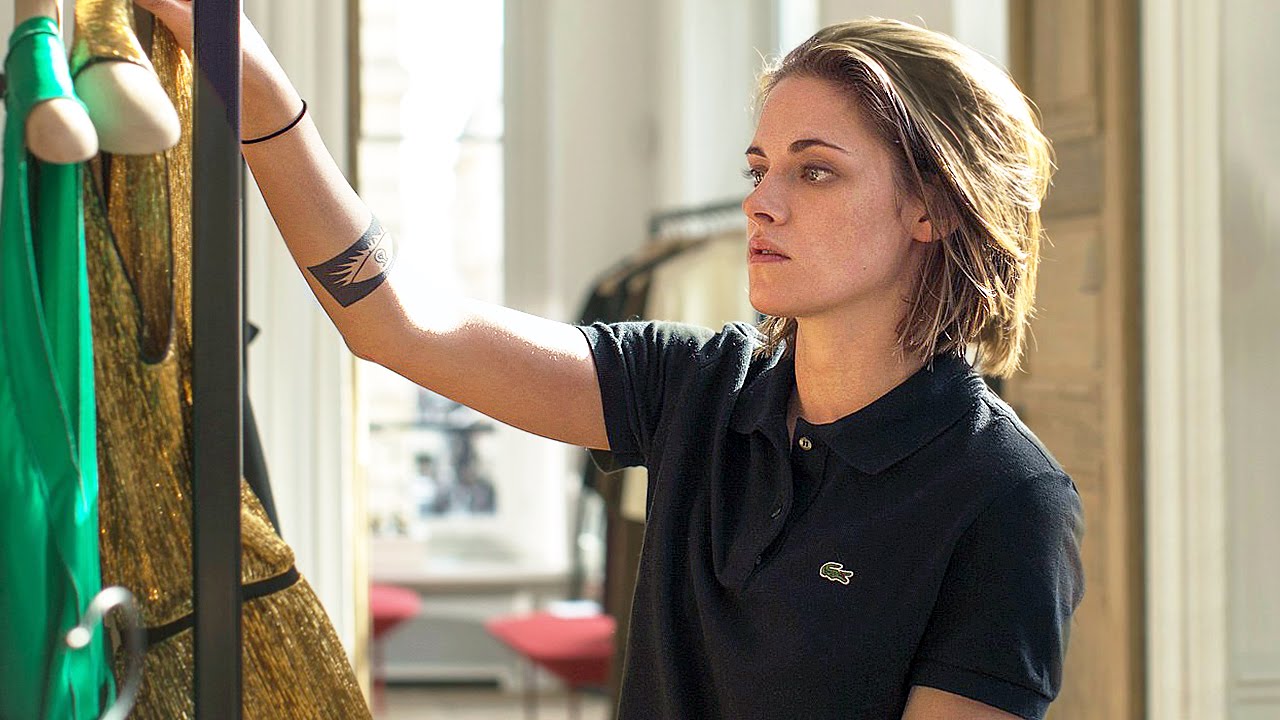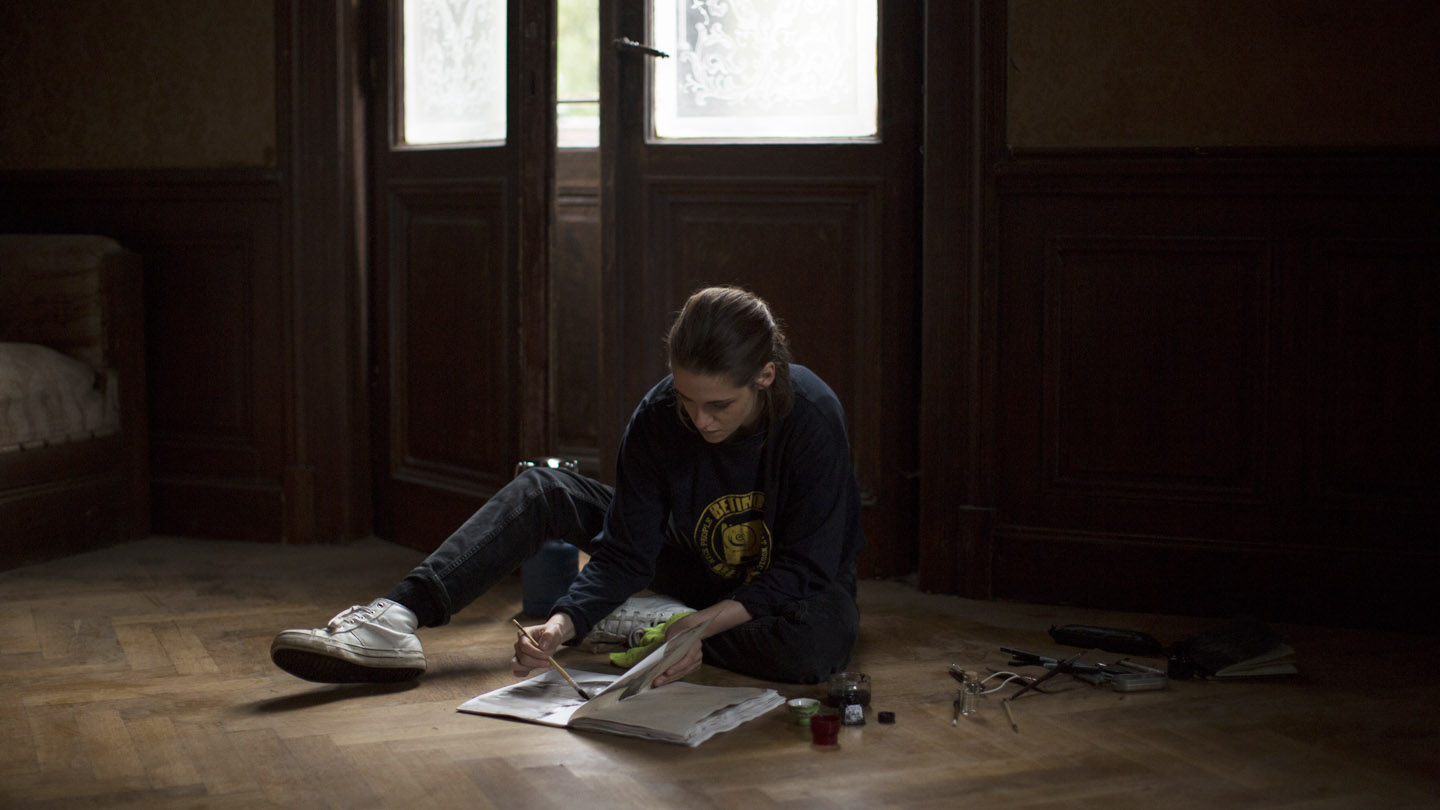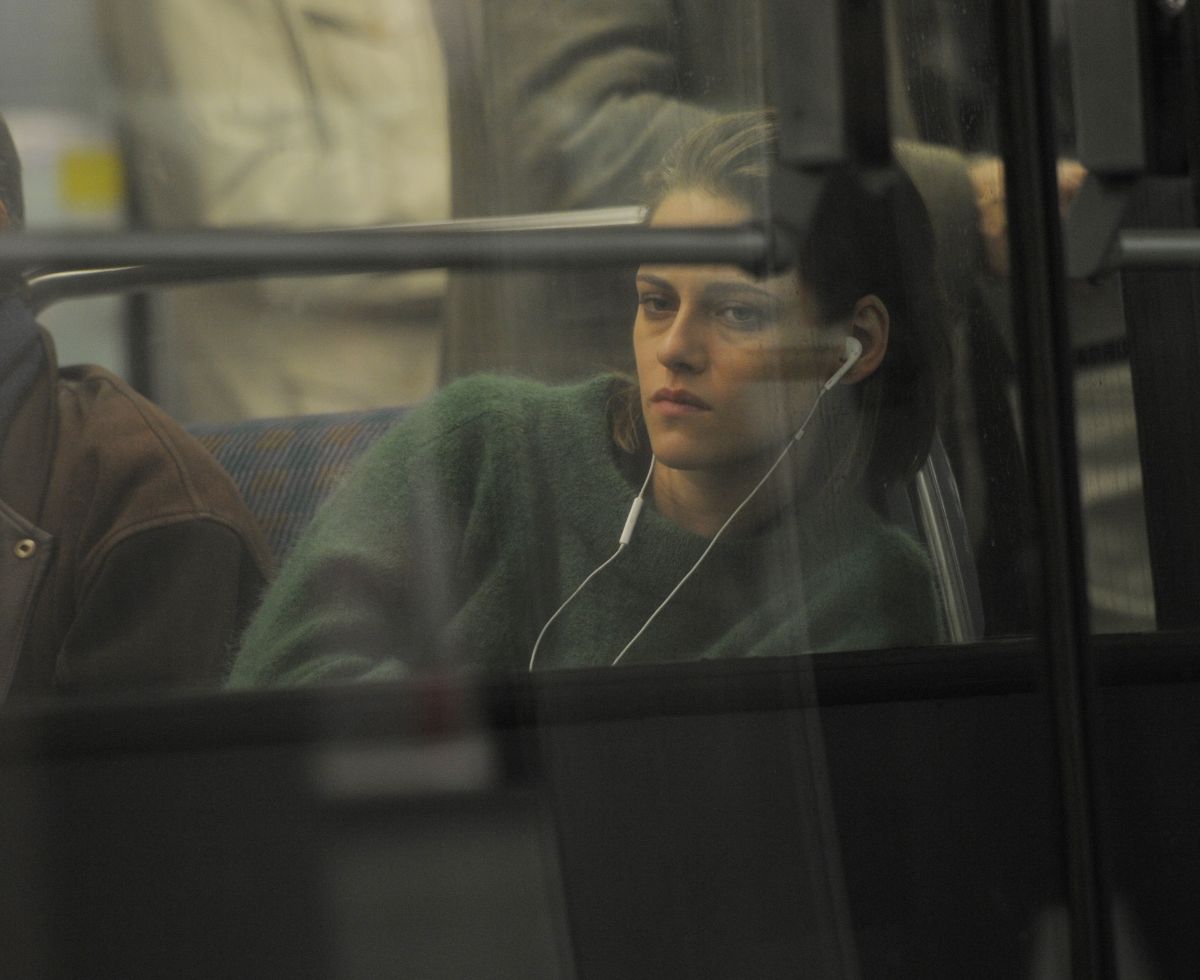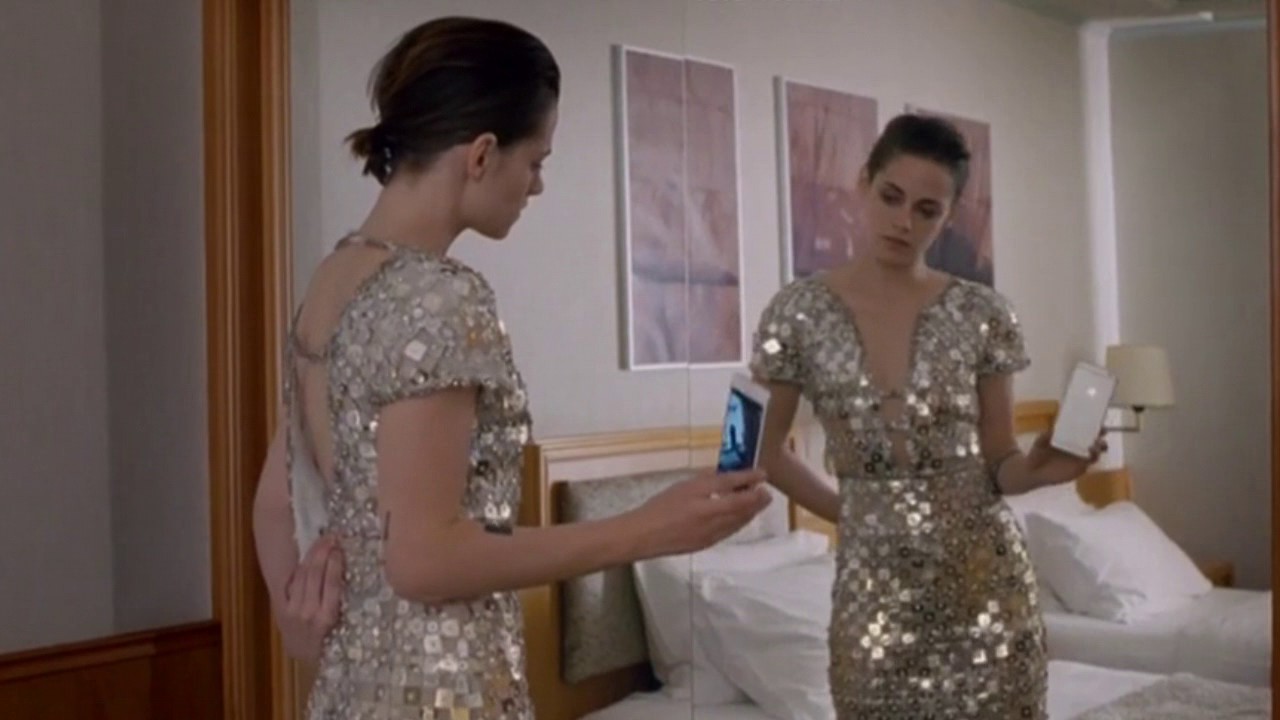Personal Shopper is a film about ghosts. Olivier Assayas says, in a spectacularly moving piece from David Ehrlich, that he thinks all movies are about ghosts:
Especially old movies. People became aware of whatever cinema was in the late ’50s, early ’60s, when the first generation of silent actors were gone, and, all of a sudden, you had these movies that were just full of specters. So film has always been the land of the dead.
In Personal Shopper, Assayas’ current muse Kristen Stewart — top-tier contender for best actor working today, in no small  part thanks to this film and their previous collaboration, Clouds of Sils Maria, another ghost story of sorts — is a medium. She has a connection to the indefinable aspect permeating our world. She couldn’t say what that aspect is if she tried. Language fails, again and again, in that particular Kristen Stewart fashion: bit lip, quick drag off a cigarette, shrug. She’s haunted.
part thanks to this film and their previous collaboration, Clouds of Sils Maria, another ghost story of sorts — is a medium. She has a connection to the indefinable aspect permeating our world. She couldn’t say what that aspect is if she tried. Language fails, again and again, in that particular Kristen Stewart fashion: bit lip, quick drag off a cigarette, shrug. She’s haunted.
Her twin brother, another medium, has died, and, in an attempt to fulfill their childhood promise to contact each other from beyond the grave, she is looking everywhere for him. What she finds is an open question that Personal Shopper is more interested in asking obliquely than answering definitely. In its startling final moments, Assayas’ film comes right out and asks. Are we the ghosts Stewart is seeking?
 But there are other spectres haunting our world. (The Assayas of Après Mai is always dropping references, even into the future.) Stewart’s character is herself one — beautiful, privileged, wandering in and out of expensive boutiques with casual disregard, spending money that isn’t hers, for clothes she’s not allowed to wear, snapped in mirror-images sent to people she’ll never meet. (Or will she?) Her employer, a high-powered fashionista, is another — seen only once on camera, making entitled demands on a conference call about, inexplicably, gorilla habitat preservation. Like most of the characters aside from Stewart, she mostly registers the way we all do now to each other: spectral presences on cell phone SMS messages, on Skype, on voicemail, representing ideologies we never fully inhabit, navigating shadows. We are neither here nor there. We’re haunted.
But there are other spectres haunting our world. (The Assayas of Après Mai is always dropping references, even into the future.) Stewart’s character is herself one — beautiful, privileged, wandering in and out of expensive boutiques with casual disregard, spending money that isn’t hers, for clothes she’s not allowed to wear, snapped in mirror-images sent to people she’ll never meet. (Or will she?) Her employer, a high-powered fashionista, is another — seen only once on camera, making entitled demands on a conference call about, inexplicably, gorilla habitat preservation. Like most of the characters aside from Stewart, she mostly registers the way we all do now to each other: spectral presences on cell phone SMS messages, on Skype, on voicemail, representing ideologies we never fully inhabit, navigating shadows. We are neither here nor there. We’re haunted.
“Neither here nor there” is an easy shorthand for our relationship not just to technology, but culture more generally. Derrida’s hauntology (works much better in French) is part and parcel of the relationship — the “always-already absent present.” Personal Shopper traces it through Stewart’s relationship to all kinds of mediations and accoutrements: the clothes, phones, mirrors, train windows. Her every word sounds like an echo in an abandoned mansion. (Or better yet, Nocturama‘s empty mall, or A Ghost Story‘s eternal recurring house. 2017 has been a year of ghost buildings.)
Derrida’s hauntology (works much better in French) is part and parcel of the relationship — the “always-already absent present.” Personal Shopper traces it through Stewart’s relationship to all kinds of mediations and accoutrements: the clothes, phones, mirrors, train windows. Her every word sounds like an echo in an abandoned mansion. (Or better yet, Nocturama‘s empty mall, or A Ghost Story‘s eternal recurring house. 2017 has been a year of ghost buildings.)
Commodity fetishism is one thing. Missing people is another. (We hope. What are we shopping for again?) In that Ehrlich interview, Stewart remarks:
I can’t imagine going back and knowing that my entire text thread with this person is still there and they’re not. People’s Facebooks become memorial-type things.
She’s right, and you know it. Or at least I do, having posted more than one remembrance on a social media wall. Like Ehrlich, my dad also died recently. And like Ehrlich, I also find it gauche to bring it up. And I also have absolutely included him on emails, by accident, inertia, or wish. We’re neither here nor there. Personal Shopper asks, “Fair enough — but where are we?”
Stewart’s answer to that question — and to her own, “Is it better to let things go and be affected by them, or always have it there to dwell on?” — is the only one I can conjure, too.
“Who knows?”

